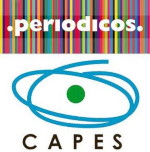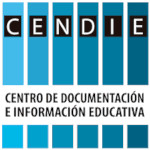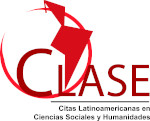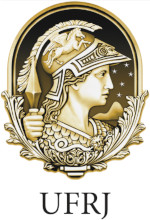Learning based on professional training challenges in the Basque Country
DOI:
https://doi.org/10.26849/bts.v44i3.725Keywords:
Vocational training, Educational innovation, Teaching training, Specific and transversal competences, Basque CountryAbstract
After a brief contextualization of the Basque Country, this article describes the ETHAZI (High Performance Cycles in Basque) training model that is being developed by Tknika - Research and Innovation Centre Applied to Vocational Training - in order to respond to the new demands that arise in the workplace as a result of globalization and the exponential increase in technology.
Downloads
References
ADEGI. Observatorio de empleo de Gipuzkoa, n. 10: evolución del nivel formativo de la población activa vasca e inserción laboral de jóvenes según nivel y tipo de formación. San Sebastián, 2016. Disponível em: <https://www.adegi.es/adegi/observatorio-empleo-gipuzkoa-n10-evolucion-nivel-formativo-poblacion-activavasca-insercion-laboral-jovenes-segun-nivel-tipo-formacion-201608/>. Acesso em: 18 out. 2018.
APPLE. Challenge based learning: a classroom guide. [S.l.], 2010. Disponível em <https://images.apple.com/education/docs/CBL_Classroom_Guide_Jan_2011.pdf>. Acesso em: 18 out. 2018.
ASTIGARRAGA, E.; AGIRRE, A.; CARRERA, X. Innovación y cambio en la formación profesional del País Vasco: el modelo ETHAZI. Revista Iberoamericana de Educación, v. 74, n. 1, p. 55-82, 2017. Disponível em: <https://rieoei.org/RIE/issue/view/50>. Acesso em: 18 out. 2018.
AUTOR, D. H.; DORN, D. The growth of low-skill service jobs and the polarization of the US Labor Market. American Economic Review, v. 103, n. 5, p. 1553-1597, 2013. Disponível em: <https://www.ddorn.net/papers/Autor-Dorn-LowSkillServices-
Polarization.pdf>. Acesso em: 18 out. 2018.
BANCO INTERAMERICANO DE DESARROLLO. Competencias del siglo XXI en Latinoamérica. Washington, DC, 2016. Disponível em:<http://www.iadb.org/es/temas/educacion/competencias-del-siglo-xxi-en-latinoamerica,3130.html>. Acesso em: 18 out. 2018.
BARKLEY, E. F.; CROSS, K. P.; MAJOR, C. H. Técnicas de aprendizaje colaborativo. Madrid: Morata, 2012.
BARRON, B.; DARLING-HAMMOND, L. Perspectives et défis des méthodes
d’apprentissage par investigation. Em: BARRON, B.; DARLING-HAMMOND, L. Comment apprend-on?: la recherche au service de la pratique, Paris: OCDE, 2010. cap. 9, p. 213-240.
CEDEFOP. Application of learning outcomes approaches across Europe: a
comparative study. Luxembourg: Publications Office of the European Union, 2016. Disponível em:<http://www.cedefop.europa.eu/files/3074_en.pdf>. Acesso em:
out. 2018.
CEDEFOP. Defining, writing and applying learning outcomes: a European
handbook. Luxembourg: Office for Official Publications of the European
Communities, 2017. Disponível em:<http://www.cedefop.europa.eu/files/4156_en.pdf>. Acesso em: 18 out. 2018.
CEDEFOP. Learning outcomes approaches in VET curricula: A comparative
analysis of nine European countries. Luxembourg: Publications Office of the European Union, 2010. Disponível em:<http://www.cedefop.europa.eu/files/5506_en.pdf>. Acesso em: 18 out. 2018.
CEDEFOP. Menos fuerza bruta y más cerebro para los trabajadores del futuro. Nota Informativa, Luxembourg, jun. 2018. Disponível em: <http://www.cedefop.europa.eu/files/9130_es.pdf>. Acesso em: 18 out. 2018.
CEDEFOP. The shift to learning outcomes: conceptual, political and practical developments in Europe. Luxembourg: Office for Official Publications of the European Communities, 2009. Disponível em:<http://www.cedefop.europa.eu/files/4079_en.pdf>. Acesso em: 18 out. 2018.
COMISIÓN EUROPEA. Comunicación de la Comisión al Parlamento Europeo, al Consejo, al Comité Económico y Social Europeo y al Comité de las Regiones: nuevas prioridades para la cooperación europea en educación y formación. Bruselas, 26 ago. 2015. Disponível em: <http://eur-lex.europa.eu/legal-content/ES/TXT/PDF/uri=CELEX:52015DC0408&rid=4>. Acesso em: 18 out. 2018.
COMISIÓN EUROPEA. Regional innovation scoreboard. Bruselas, 2016. Disponível em: <http://ec.europa.eu/growth/industry/innovation/facts-figures/regional_en>. Acesso em: 18 out. 2018.
How to Cite
Issue
Section
License
Commitment to the Provision of Creative Commons Licensing
The Senac Journal of Education and Work is per the BY NC license, free of charge and with no commercial purpose.
In submitting their work for evaluation, the authors undertake to make their work available through the Creative Commons-BY NC license at the website <https://br.creativecommons.org>, thus dispensing with the need for signing any other document or contract with Senac to regulate the availability of their works in the Senac Journal of Education and Work.
The author (s) further declare that they recognize the Senac Journal of Education and Work as an open access journal, whose Policies and Authors Guidelines are available to know on its official website, namely - www.bts .senac.br - and that they can be modified at any time, and immediately any new condition published online.
The names and addresses informed in this journal will be used exclusively for the services provided by this publication and are not available for other purposes or to third parties.




















